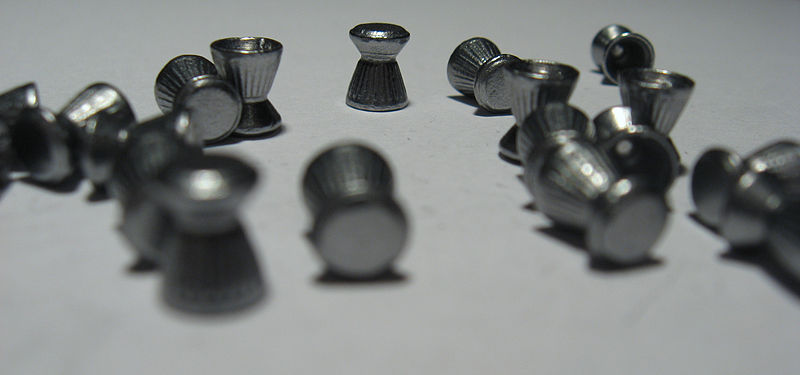The Air Rifles range from simple pellet
rifles to custom European rifles, there are hundreds of
variations of rifles, and of adjustments on the rifles
themselves to custom fit an individual shooter.
The Air Rifles range from simple pellet
rifles to custom European rifles, there are hundreds of
variations of rifles, and of adjustments on the rifles
themselves to custom fit an individual shooter.
Despite this the workings of the rifles are essentially the
same. An air cylinder of compressed air is attached to the
gun, and a regulator. A single-stroke lever cocks the gun, and
the trigger releases the pressurized air, which propels a .177
caliber pellet.

The pellet is propelled down the rifled barrel, which has
ridges and grooves that spiral around the inside of the barrel
that causes the pellet to spin as it leaves the barrel and
travels through the air. The spin causes the pellet to follow
a straighter more accurate trajectory. Since the pellet is
traveling in the horizontal direction it has the velocity from
the initial propulsion of the air. The other forces acting on
it are the air resistance, which would only have a small
effect due to the short distance traveled. There would also be
drag acting on the pellet as it is in the air, but they are
designed to use this force to stabilize itself during flight.
Another force acting as the air rifle is Newton’s Third Law of
Motion, that for every action there is an equal and opposite
reaction. The released air that propels the pellet has a force
in the direction of the target (hopefully). As this occurs
there is an equal and opposite reaction that is directed
toward the rear of the rifle and therefore the person holding
the rifle. This force is enough to propel the pellet at around
300 to 400 meters per second; when it’s equal and opposite
force acts on the person holding the rifle is relatively small
due to the significantly greater mass of the person when
compared to the mass of the pellet.
This recoil is minimal when compared to the recoil of more
common firearms. The air rifles are designed so that this
equal and opposite force is the only one enacted and other
movements, like vibrations, are absorbed into the system of
the rifle and do not affect the shooter.